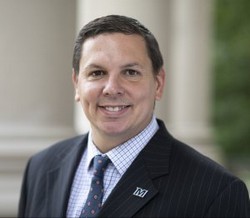Internet Censorship Act Garners University Responses
 Attempts to control copyright infringement and distribution is nothing new. The Digital Millennium Copyright Act of 1998 criminalized services, with the purpose of circumventing measures that control access to copyrighted works.
Attempts to control copyright infringement and distribution is nothing new. The Digital Millennium Copyright Act of 1998 criminalized services, with the purpose of circumventing measures that control access to copyrighted works.
This act had exceptions towards materials used for educational purposes; it also stated limitations on the liability of online service providers for copyright infringement when engaging in certain types of activities, according to the US Copyright Summary. Recently, however, governments have become stricter and this past year introduced several new acts in this area.
The Stop Online Piracy Act (SOPA) was introduced by Texas Republican Representative Lamar Smith with 12 cosponsors on October 26, 2011. In short, SOPA allows the Justice Department and copyright holders to seek court orders against websites that aid in copyright infringement; included is anything from torrent sites to spoofs of pop music on YouTube. Additionally, SOPA includes an anti-circumvention clause that mandates the removal of links to copyrighted material that appear on social media websites. If the sites fail to remove the link, they then face the potential of being shut down.
Cnet.com is a website that provides technological news. On November 15, 2011, it carried reports that representatives of LinkedIn, Yahoo, AOL, Google, Zynga, Facebook, Twitter, Mozilla and EBay wrote a letter to the Senate and House of Representatives regarding SOPA. They called it “a serious risk to our industry’s continued track record of innovation and job creation, as well as our nation’s cyber security.”
Similarly, the Protect IP Act (PIPA) was introduced by Vermont Senator Patrick Leahy on May 12, 2011. PIPA is often grouped alongside SOPA, but it is more specific in that it applies to domain name system providers, ad networks and financial companies. SOPA, in comparison, broadly applies to all Internet content.
A massive protest against SOPA and PIPA occurred on January 18, 2012. Popular sites opposed to the bill blacked out or warned of how SOPA would affect their site, should it be passed. Participants included reddit.com, wordpress.com, the Oatmeal.com, xkcd.com, IGN.com, tumblr.com and explosm.net. According to sopastrike. com, there were 10,000 signatures on an official petition against SOPA, over 3,000,000 emails sent to government officials and over 115,000 sites participated, making it the largest online protest in history.
Mary Harris, a Specialist Professor of Communication at the University, took note of the protest. “The SOPA protest was a huge eye-opener for Americans. Consider what it would be like with strict government control over the Internet. We are in a society where most corporations, nonprofits, small businesses and individual citizens use the Internet daily and, in doing so, rely on it for work, education, entertainment and the list goes on. The Internet protest that took place on January 18 demonstrates the power that can arise from free, shared knowledge,” Harris said.
Matt Marciano, a sophomore, also is against SOPA. “As a college student with not a lot of money, it’s amazing to be able to have access to anything for free. Why spend $14 for a CD on Amazon or $100 on software for class when you can download it off of a torrent site,” Marciano said.
Anthony Morello, also a sophomore, hopes that the Internet stays free by giving citizens the option to view whatever content they please. “SOPA would allow the government to choose what Internet media we watch, since just about anything can be pinned for copyright infringement. The Internet gives anyone the freedom to make their own content and anyone can become a sensation. SOPA will eliminate this and force you to watch what they want you to watch. SOPA is one step closer to Big Brother becoming a reality,” Morello said.
SOPA has been shelved indefinitely since January 20, 2012. Joseph Coyle is an Associate Professor and Director of Financial Mathematics. “Had SOPA gone through, it would have had an effect on say, everyone who uses Google, by changing the search result,” Coyle said.



